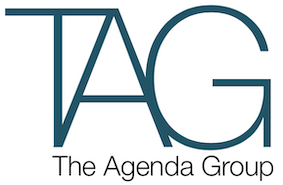This afternoon, Prime Minister Tony Abbott made a crossroads speech at the National Press Club and promised to consult widely on decisions in future.
The speech began on a familiar note, reminding the audience of Labor spending and waste, spending nearly 15 minutes cataloguing the Coalition government’s achievements, the majority of which was devoted to driving home the message of strengthening the economy.
The Prime Minister contrasted his own approach of borrowing only when necessary to previous government practice, putting to rest any speculation that the government was going to use the current bond rate of 2.55 per cent (the lowest in living memory) to get some big infrastructure projects off the ground. Abbott explicitly referred to the Intergenerational Report, due for release last month, saying it will show that more is needed for a strong economy than just a surplus, comparing it to New Zealand’s budget and the lack of ‘unnecessary commitments.’
It’s clear that that the Intergenerational Report is top of mind for the Prime Minister, as he later answered a question about the fairness of the last budget’s burden falling more on poorer Australians with, “What’s fair about saddling our children with debt. It’s intergenerational theft… blighting the lives of our children and grandchildren.” Abbott says Australia is at an important economic crossroads, and the “Rudd-Gillard-Rudd years cannot become the new normal.” Throughout the speech he peppered references to the instability of the previous government, referred to his government’s achievements not as the Coalition Government, but the ‘Abbott government.”
Abbott recapped his government’s pledges in 2013-era sound bites, reaffirming his commitment to data retention laws and saying law enforcement has been crying out for powers to deal with “Islamist fanatics.” He said that the more generous paid parental leave scheme was “off the table” and it will be shifted to fixing child care and the problem of multiple payments. Presumably in his capacity as Minister for Women, Abbott then said that women are the biggest source of underutilised skills and if our participation rate were 6 per cent higher as in Canada, it would add $25 billion in GDP. Pitching women’s issues as economic issues helped the Prime Minister transition to signalling his small business and jobs package, but he was light on detail and elaboration.
Abbott says he’ll “consult widely” on the Reform of the Federation White Paper and tax white papers, spending minutes reassuring state leaders that the base rate of GST can’t and won’t change unless there is political consensus. He said that states will have senior representatives on all white paper committees, and “unlike previous debates, we won’t pre-empt outcomes by ruling things in or out.” Even before the questions began, Abbott sounded like a leader under attack, saying the white paper process is not a chance for “cheap shots,” and that “you elected us, you elected me to put the focus on you and not us.”
He closed his address by saying he’s been standing up for Australian values all his life and that it isn’t a popularity contest, declaring that the Australian public deserves a stable government, and said that’s what this government — this Abbott government — is. The journalists in attendance pulled no punches in their questions after the speech, with the first cab off the rank, Chris Uhlmann, asking if the Prime Minister had considered resigning as Leader. Abbott returned to his 2013 campaign mode, saying the Australian people rejected chaos and it’s the people that hire and the people should fire prime ministers. Although he quoted John Howard many times, this statement put the PM at odds with his idol, who said, “leadership is the gift of the party room.”
Abbott weathered repeated probes about his leadership, replying that he makes a habit of not ‘running a commentary on himself’ and promising to be more consultative and collegiate. When asked if a line in his speech, “there will be no carbon tax under the government I lead,” was a dig at potential leadership rival Malcolm Turnbull, a claim Abbott deftly dismissed. But when asked whether he had the confidence of his Party, he seemed to point the finger at his colleagues for disloyalty, saying that until now when journalists ring asking about policies, “the correct answer: I support this government and the policies” was not given, and when asked about the leader, the “correct answer of: a great person doing a great job has not been given.” When asked how he would handle the 63,400 more unemployed and the changing asset balance in states, Abbott reaffirmed his desire to be the ‘infrastructure Prime Minister’ and conceded it was necessary to work with the states, before changing tack and claiming it is the “midsummer of madness to pay $1.2 billion not to build a road” of the East West Link in Victoria, renewing his attack on Labor’s spending in true Opposition style.
The catch-cry of the address was Tony Abbott’s promise to be more consultative and collegiate, but one journalist cited 12-15 times since 2010 where Abbott made the promise of a ‘consultative and collegiate government’ querying how the back bench could trust this promise. The Prime Minister acknowledged that the paid parental leave scheme and the restoration of knighthood were ‘captain’s calls,’ but refused to guarantee that there wouldn’t be such calls in the future, simply restating a commitment to leave awards solely to the Committee.
Repeatedly, journalists raised the differing skill sets of an Opposition Leader and a Prime Minister, and Abbott was clearly most at home in his well-worn Opposition attack mode. The PM sank easily into familiar rhetoric when asked whether his review of childcare payments would be seen by Labor as an attack on family benefits, saying “no matter what we do, Labor will run a scare campaign.”
